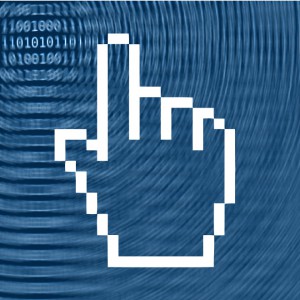 Earlier this year cyber security software company Kapersky announced the discovery of a cyber intrusion that affected many of it’s internal computer systems which initiated a large scale investigation. They believe the virus penetrated their systems through an email attachment sent to an employee at the company. From there the virus moved stealthily through the company’s computer network targeting it’s customer’s computer networks and collecting information. Instead of removing the virus Kapersky monitored the virus on their systems in an attempt to better understand its function and purpose.
Earlier this year cyber security software company Kapersky announced the discovery of a cyber intrusion that affected many of it’s internal computer systems which initiated a large scale investigation. They believe the virus penetrated their systems through an email attachment sent to an employee at the company. From there the virus moved stealthily through the company’s computer network targeting it’s customer’s computer networks and collecting information. Instead of removing the virus Kapersky monitored the virus on their systems in an attempt to better understand its function and purpose.
The investigation led to the discovery of a new highly sophisticated malware platform known as Duqu. The platform was developed from one of the most skilled, mysterious and powerful underground groups in malware. The virus is considered to be in the same league of complexity as the “Stuxnet” worm that was discovered in June 2010 by “Symantic” and has been nicknamed the “step-brother of Stuxnet” in the cyber security world. The Stuxnet worm was a malware created to target Iranian nuclear centrifuge control system software and reportedly ruined one-fifth of Iran’s nuclear centrifuges.
The Duqu malware platform was initially discovered in 2011 by Crysys labs in Budapest Hungary. Crysys Labs released a 60 page document to the cyber security world defining it as a cyber threat that was not related to Stuxnet as was initially believed because it was nearly identical to Stuxnet, but seemingly had a completely different purpose.
In 2012 the mysterious group responsible for Duqu seemed to have gone dark, and the Duqu virus seemed to no longer pose a threat, that is, until now.
The Duqu virus attacks Microsoft Windows computers by using a “zero-day-vulnarability” that uses a Microsoft Word document (.doc) to exploit the computer. A win32k font parsing engine actually enables the virus to install onto the victims computer when the victim downloads and tries to open the Microsoft document.
At first Duqu was thought to be targeting industrial control systems like the “Stuxnet” worm, but recent revelations have uncovered a very different purpose for the virus. The virus actually is a form of spyware targeted hotel computer systems where nuclear arms talks with the Iranian government and allied world leaders (p5+1 events) were happening throughout the world.
Costin Raiu, director of the global research and analysis team at Kaspersky, said the virus was packed with more than 100 discrete “modules” that enabled the infected computers to be controlled by someone else. Other modules found were designed to compress video feeds from surveillance cameras, and also target communications from phones to Wi-Fi networks. The attackers would know who was connected to the infected network, allowing them to eavesdrop on conversations and steal electronic information. The virus is also capable of operating two-way microphones in hotel elevators, computers and alarm systems. The virus automatically deposits a small file on the infected computer to enable a way for the attackers to monitor and return to the computer at a later date.
The only question is, who is responsible for this complex and sophisticated eavesdropping attempt? Who would benefit most from this sort of intelligence? Cyber security experts at Kapersky hinted toward involvement from the Isreali government, initially naming the virus “The Duqu Bet”. “Bet” being the second letter of the Hebrew alphabet, but later changed the name to Duqu 2.0. The Israeli government did not claim any involvement in the Duqu malware platform.
The sophistication and dedication of the Duqu group is a testament of just how complex a virus can be all in an attempt to collect information.
 Cybercriminals claiming to be from Microsoft or an anti-virus company may call an unsuspecting victim on the phone. The victim’s information is usually obtained through publicly available phone directories so they scammer may also know other information such as the victim’s name and address when they call.
Cybercriminals claiming to be from Microsoft or an anti-virus company may call an unsuspecting victim on the phone. The victim’s information is usually obtained through publicly available phone directories so they scammer may also know other information such as the victim’s name and address when they call. 
 It seems almost common these days to read about corporations engaging in blackhat hacking operations to steal data from their rival competitors, but never before have we heard of the same blackhat hacking tactics being used by professional sports league teams.
It seems almost common these days to read about corporations engaging in blackhat hacking operations to steal data from their rival competitors, but never before have we heard of the same blackhat hacking tactics being used by professional sports league teams. Earlier this year cyber security software company Kapersky announced the discovery of a cyber intrusion that affected many of it’s internal computer systems which initiated a large scale investigation. They believe the virus penetrated their systems through an email attachment sent to an employee at the company. From there the virus moved stealthily through the company’s computer network targeting it’s customer’s computer networks and collecting information. Instead of removing the virus Kapersky monitored the virus on their systems in an attempt to better understand its function and purpose.
Earlier this year cyber security software company Kapersky announced the discovery of a cyber intrusion that affected many of it’s internal computer systems which initiated a large scale investigation. They believe the virus penetrated their systems through an email attachment sent to an employee at the company. From there the virus moved stealthily through the company’s computer network targeting it’s customer’s computer networks and collecting information. Instead of removing the virus Kapersky monitored the virus on their systems in an attempt to better understand its function and purpose. Social media “click bait” targeting has become a big business in recent years. “Click-baiting” is when a publisher posts a link on a social media website like Facebook, Twitter, or Pinterest with a headline that lures people to click to see more, without telling them much information about what the user will really be taken to. Websites like BoredPanda, Buzzfeed, Reddit, College Humor, and Gawker (to name a few) use click bait headlines to lure users to embedded web content surrounded by advertisements. Click baiting has forced Facebook developers to re-evaluate their algorithm for what is considered relevant content, as currently the more clicks a link receives the more likely it is to appear in other users feeds. Wording a link with just the right message in order to get users to click out of the social media website is what “click baiting” is all about. While many of these links take users to relevant content (like this article), there are several new scams also using the tactic to infect computers with malware or attempt to steal personal information.
Social media “click bait” targeting has become a big business in recent years. “Click-baiting” is when a publisher posts a link on a social media website like Facebook, Twitter, or Pinterest with a headline that lures people to click to see more, without telling them much information about what the user will really be taken to. Websites like BoredPanda, Buzzfeed, Reddit, College Humor, and Gawker (to name a few) use click bait headlines to lure users to embedded web content surrounded by advertisements. Click baiting has forced Facebook developers to re-evaluate their algorithm for what is considered relevant content, as currently the more clicks a link receives the more likely it is to appear in other users feeds. Wording a link with just the right message in order to get users to click out of the social media website is what “click baiting” is all about. While many of these links take users to relevant content (like this article), there are several new scams also using the tactic to infect computers with malware or attempt to steal personal information. A new destructive virus known as Rombertik avoids detection from most anti-virus software by making a computer unusable by deleting key files on a computer and filling the hard drive with extraneous bytes of data in order to overwhelm the anti-virus software from detecting it.
A new destructive virus known as Rombertik avoids detection from most anti-virus software by making a computer unusable by deleting key files on a computer and filling the hard drive with extraneous bytes of data in order to overwhelm the anti-virus software from detecting it.  Since 2012 a very sophisticated new form of ransom-ware has been infecting millions of Windows computers. CryptoWall, Cryptorbit, and CryptoLocker or Crypto-malware is a Trojan horse that encrypts files on the compromised computer. The malware uses RSA 2048 bit encryption to scramble important data files using public/private key cryptographic technology making the data files unusable. The victim is instructed to pay a hefty ransom fee ranging from $150 to $750 USD using an anonymous bitcoin payment method to purchase the decryption key that will allegedly decrypt the users files. Even if the user pays the ransom, there’s no guarantee that the attacker will provide the decryption key needed to unlock their files.
Since 2012 a very sophisticated new form of ransom-ware has been infecting millions of Windows computers. CryptoWall, Cryptorbit, and CryptoLocker or Crypto-malware is a Trojan horse that encrypts files on the compromised computer. The malware uses RSA 2048 bit encryption to scramble important data files using public/private key cryptographic technology making the data files unusable. The victim is instructed to pay a hefty ransom fee ranging from $150 to $750 USD using an anonymous bitcoin payment method to purchase the decryption key that will allegedly decrypt the users files. Even if the user pays the ransom, there’s no guarantee that the attacker will provide the decryption key needed to unlock their files.  On March 17 2015 the software company Microsoft announced that it would be phasing out support for its Internet browser software “Internet Explorer” also known as “IE”. Internet Explorer is the Internet browser packaged with the Microsoft Windows operating system since 1995 and was the most frequently used Internet browser for several years in the early 2000s. The web browser will be replaced in Windows 10 with a new web browser known as “Spartan” however will still be included in some enterprise editions of Windows 10.
On March 17 2015 the software company Microsoft announced that it would be phasing out support for its Internet browser software “Internet Explorer” also known as “IE”. Internet Explorer is the Internet browser packaged with the Microsoft Windows operating system since 1995 and was the most frequently used Internet browser for several years in the early 2000s. The web browser will be replaced in Windows 10 with a new web browser known as “Spartan” however will still be included in some enterprise editions of Windows 10.  Lenovo recently released a product security advisory about a man-in-the-middle attack vulnerability that exists on some of the Lenovo Notebook laptop models sold by the company between Jan 2014 until Feb 2015.
Lenovo recently released a product security advisory about a man-in-the-middle attack vulnerability that exists on some of the Lenovo Notebook laptop models sold by the company between Jan 2014 until Feb 2015.